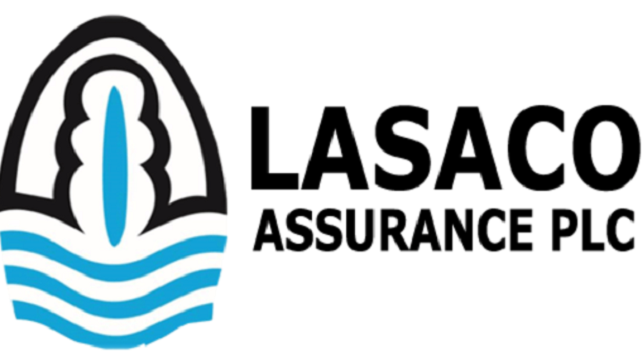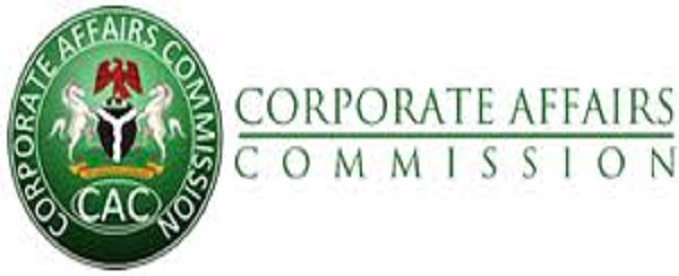News
Looking Beyond Oil Price Collapse Towards Post Recovery Savings (Part 1)

By Austin Okere
The recurrent mistake we keep making as a Nation is failing to anticipate and plan for our oil windfalls.
There have been many boom opportunities since Nigeria joined the Organisation of Petroleum Exporting Countries (OPEC) in 1971; Oil prices increased by 400% in six short months after the Yom Kippur War following the Arab Oil Embargo. Crude prices doubled from $14 in 1978 to $35 per barrel in 1981 following the Iran/Iraq war.
The price of crude oil spiked in 1990 with the uncertainties associated the Iraqi invasion of Kuwait and the ensuring Gulf War – the so called ‘Gulf War windfall’ under then Head of State Ibrahim Babangida. Data from the U.S. Energy Information Administration shows that the latest windfall happened between February 2011 and August 2014, under the Goodluck Jonathan presidency, when oil prices were much in excess of $100 per barrel.
Another golden opportunity was squandered, characterised by organised kleptocracy of epic proportions as has now come to light.
During this same period Saudi Arabia has amassed a whopping $593b in foreign exchange reserves and has recently announced that it is creating a $2 trillion mega-sovereign wealth fund, funded by sales of current petroleum industry assets, to prepare itself for an age when oil no longer dominates the global economy.
Coming closer home, Algeria, the second biggest African oil producer, with 1.9mbpd has accumulated foreign reserves of $156b and a sovereign wealth fund of $50b.
Nigeria, by far the biggest producer in Africa with 2.5mbpd has only managed foreign reserves of $28b and a sovereign wealth fund of a paltry $2.9b – about 5% that of Algeria.
The major difference between them is that while the Algerians saved for a rainy day during the boom years, Nigeria was busy squandering her wealth, with nothing to show by way of infrastructure or any solid investments.
Yet Nigeria was able to balance her budget, pay off her debts and save over $62b in foreign reserves during the Obasanjo presidency from 1999 to 2007, even though the price of crude was mostly under $40 per barrel, except for the two years between 2005 and 2007 when it hovered between $50 and $75 dollars per barrel.
It is bothersome that with the same level of oil price, Nigeria today is struggling to balance her budget and has resorted to aggressive borrowing to finance the deficit, inadvertently driving us back to where we were before escaping from the huge burden of sovereign debt and the attendant debilitating impact of debt servicing.
I believe that Nigeria can save as much as $36.5b in the coming year if oil prices recover towards the end of 2016 and through 2017 to the projected $80 per barrel.
This assumes we have all agreed that the current crisis is much too painful and too precious to waste.
It can actually be a blessing in disguise, affording us the much needed leverage to deliberately diversify our economy away from the over dependence on oil, and attempt to become self-sufficient in every low hanging opportunity such as feeding ourselves.
There is a reason why the Chinese use the same word for challenge and opportunity; behind every challenge is an opportunity.
We must seize this golden opportunity with both hands and make the structural changes that will lead us to true prosperity as a nation.
Almost every third Nigerian businessman you come across claims to be into Oil and Gas; usually, briefcase contractors who manage to have their ‘papers’ stamped, and proceed to collect money from the treasury of our commonwealth. Yet oil contributed only 6.4% to GDP growth in 2015.
An often overlooked area for rapid economic growth is telecoms, entertainment and media.
At a recent event in Lagos, Dr. Doyin Salami, lecturer at Lagos Business School, remarked that ‘The telecommunication sector grew Nigeria’s GDP by 8.7% in 2015, generating spill overs, with uptakes in financial transactions technology and payment systems, e-commerce facilitation and proliferation of transport services, while making the offering of the burgeoning entertainment industry ubiquitous’.
Quite simply, if each of the 34 million MSME’s in Nigeria could be supported with technology to improve their businesses through online presence and seamless bookkeeping to the point of employing one more staff, they would create an additional 34 million jobs, much more than the government can ever provide.
I totally agree with Dr. Salami that Nigeria’s economy has systematically and strategically diversified along the lines of technology and other services sector without Nigerians noticing.
The services sector today contributes as much as 52% of Nigeria’s GDP.
Agriculture is also another sector that could do with special attention. If we strive to produce what we eat, we will not only be saving a whopping $6b from our import bill, but also provide the opportunity for inclusive growth, with the spill over effects down the value chain, from logistics and transportation to light manufacturing.
But we need to make the right investments in infrastructure such as roads and rail transport linking farms with their food processors and markets.
The change that will make all this happen is not the ‘outsourced variety’ where we believe that we can carry on with business as usual, or sit back and fold our arms while only the President delivers the promised change. All hands must be on deck, and we each have to be the change we desire.
Austin Okere is the Founder CWG Plc and Entrepreneur in Residence, Columbia Business School, New York. He also serves on the World Economic Forum Business Council on Innovation and Intrapreneurship.
News
Lasaco Assurance to Invest in Technologies, Systems to Deliver Value to Clients

Lasaco Assurance Plc, has said it would continue to invest in technologies and systems that delivers tangible value to clients and drive industry innovation.

Mr Abiodun Razzaq, Managing Director of Lasaco Assurance, who stated this at the 2025 customer forum organised by the company for its northern region customers in Abuja, said the forum’s interactive session offered an invaluable platform for open and constructive dialogue.
He said the forum brought together a distinguished assembly of customers, including policyholders, brokers, corporate clients, and industry partners, to engage in a robust dialogue aimed at enhancing service delivery and aligning offerings with the evolving expectations of the Northern market.
In his opening remarks, Regional Manager (Northern Region), Lasaco Assurance, Mr. Kunle Hamza underscored the company’s unwavering dedication to stakeholder engagement as a foundational pillar of its growth strategy. He emphazised that customer insights remain integral to shaping policies, refining service processes, and reinforcing the company’s brand promise.
He provided a compelling overview of Lasaco assurance’s recent performance and strategic priorities. He highlighted the company’s consistent premium income growth, bold digital transformation agenda, and ongoing operational restructuring designed to ensure responsiveness and resilience in a dynamic insurance landscape.
Addressing the customers, Mr. Adedayo Adetokun, Head of Strategy, affirmed that Lasaco assurance was actively developing multiple digital platforms to cater forvarious customer segments—part of a broader digital innovation roadmap that positions the company for future growth. He noted that human capital development was also being prioritised with targeted investments in talent acquisition and training to enhance operational capacity.
In his closing remarks, Mr. Muyiwa Anwoju, General Manager, Sales, expressed the management’s deep appreciation for the feedback received.
He assured participants that all contributions would be meticulously reviewed, categorised, and integrated into the company’s improvement plans. According to Anwoju, this forum marks the beginning of a renewed customer engagement framework, one that would be expanded across other regions in due course.
News
CAC Announces Upward Review of Service Fees

Corporate Affairs Commission (CAC) has announced an upward review of its service fees, which will take effect from August 1, 2025.

The announcement was made through the commission’s official social media page on Tuesday, June 17, 2025.
According to the CAC, the fee adjustment was necessary due to the current economic conditions, rising operational costs, and input from key stakeholders.
The statement read, “The Commission wishes to inform the General Public, Esteemed Customers, and all Stakeholders that in the continued efforts to improve its service quality and delivery, it has become necessary to review certain service fees effective the 1st day of August 2025.”
The commission explained that the fee changes are part of efforts to deliver better and more digitalised services while maintaining the integrity of Nigeria’s corporate registry.
The revised fee structure will affect services related to companies, business names, limited partnerships, and incorporated trustees.
Key fee changes announced by the Corporate Affairs Commission (CAC) include adjustments across various service categories.
For voluntary striking-off, the fee is now ₦50,000 for small companies and ₦100,000 for public companies, up from the previous ₦25,000.
Relisting a company will cost ₦50,000 for LTD/GTE and ₦100,000 for public companies.
Due diligence through self-service is set at ₦50,000. Requests for extension of time to hold an annual general meeting will now cost ₦100,000 for public companies and ₦50,000 for others.
Historical search reports will range from ₦20,000 to ₦30,000 per request. A restriction of a director’s residential address now attracts a ₦25,000 fee, while obtaining a certified true copy of documents or extracts will cost ₦5,000 per copy.
For limited partnerships, both voluntary striking-off and relisting will cost ₦25,000. A letter of good standing will be ₦10,000, registration and certified copies of documents will be ₦30,000, and a change of name will attract a ₦10,000 fee.
Regarding business names, voluntary striking-off is now ₦10,000, relisting ₦25,000, and an application for cessation ₦10,000. The certified true copy of documents will cost ₦5,000 each, and restriction of a proprietor’s address will also be ₦25,000.
Name reservations remain at ₦1,000, while reserved names with restricted words still cost ₦5,000.
The new fee structure is expected to impact business owners, lawyers, compliance officers, and others who interact with the corporate registry.
News
Global Travel Made Simple with Kaspersky eSIM Store

Kaspersky eSIM Store is a new connectivity solution for international travel. Designed to make it easier for leisure and business travellers to stay online globally, it empowers users with easy Internet access across 150+ countries and regions, with a choice of over 2,000 affordable data plans.

The production of eSIM-compatible devices has increased tenfold in the last five years according to the GSMA. By 2028, it is expected that half of all mobile connections worldwide will use eSIM technology.
This rise in popularity is driven by eSIM’s convenience and ease of use – eliminating the need for physical SIM cards and enabling a hassle-free experience wherever you go.
To meet this growing trend, Kaspersky eSIM Store provides access to eSIM plans from local telecom operators all over the world – with an easy interface and simple management.
A new way to always stay connected
Kaspersky eSIM Store lets users to enjoy affordable and easily accessible Internet connections around the globe without the hassle of physical SIM cards. Users can seamlessly access eSIM plans from local telecom providers in 150+ countries and regions worldwide, providing favourable rates and transparent conditions without any roaming fees.
While travelling, an eSIM can help users avoid high roaming costs on a primary SIM, remove the need to search for a local SIM kiosk and share personal data with them, as well as avoiding the use of unsecured public Wi-Fi networks.
Instead, eSIM ensures that leisure travellers can focus on the joyful moments of their trip and instantly share them with friends and relatives, while business travellers have continuous access to important messages, working documents and video calls.
Seamless connection in a few taps
Kaspersky eSIM Store features a user-friendly interface for plan selection, purchase, top-ups, and data usage management. Travellers can choose their preferred activation date, allowing them to set up their eSIM in advance and be connected the moment their trip begins — all in just a few taps.
To match the needs of any traveller, there are many flexible ways to choose and manage data plans.
Options are available based on destination, including plans for specific countries, global plan 122 destinations, or mini-global plans tailored to specific regions.
For trip duration, travellers can select between expiring plans valid for a fixed period or non-expiring plans that remain active until the data is fully used. This ensures convenience whether the trip is short or long.
Additionally, users have control over when their plan starts. They can either schedule activation for a specific date or begin using the data immediately, providing flexibility to align with their travel schedule.
To ensure users never run out of GB unexpectedly, Kaspersky eSIM Store provides real-time data usage monitoring and alerts when a balance is near zero. The user profile (on the webpage or in the app) allows quick top-ups and supports multiple countries on a single eSIM – install once and use for a lifetime.
Kaspersky eSIM Store is launched in partnership with award-winning provider BNESIM Limited, which has been delivering global eSIM services since 2017.
“At Kaspersky we are constantly keeping up with latest trends shaping our digital habits, and eSIM is definitely one of them. eSIM technology greatly simplifies travelling abroad, allowing people to stay connected and not worry about issues like roaming charges.
“We know from our own experience how important it is to stay in touch with your family or colleagues when you are on a trip, so we designed Kaspersky eSIM Store for all types of travellers to ensure instant access to eSIM data plans wherever they go, as well as to provide a safe and positive digital experience,” – Mikhail Gerber, Executive Vice President, Consumer Business, Kaspersky.
Kaspersky eSIM Store complements Kaspersky’s wide range of industry-recognised solutions, such as Kaspersky VPN Secure Connection and Kaspersky Premium. Together they cover all modern connectivity needs and enhance digital freedom – ensuring safe, worry-free connectivity across the world.

 Telecom2 days ago
Telecom2 days agoALTON Clarifies on Migration to End-User Billing for USSD Services

 Telecom3 days ago
Telecom3 days agoGSMA, Mobile Industry Call for Strengthened Action to Advance Child Online Protection in Africa

 News2 days ago
News2 days agoDigital Africa Global Consult, NDPC Partner on Ground-Breaking “Nigeria Data Challenge” Initiative

 General News3 days ago
General News3 days agoTD Africa, HP Strengthen Partnership to Advance Africa’s Tech Ecosystem

 E-Financial2 days ago
E-Financial2 days agoNigerian Stock Market Suffers ₦183 Billion Loss Amid Profit-Taking

 News2 days ago
News2 days agoDStv Rewards Loyal Customers with Free Package Upgrades

 Telecom2 days ago
Telecom2 days agoLagos Future Conference 2025: Stakeholders Call for Digital Responsibility and Grassroots Innovation

 General News2 days ago
General News2 days agoAfrican Parliamentarians Seek Answers from Telcos on Quality of Service
























